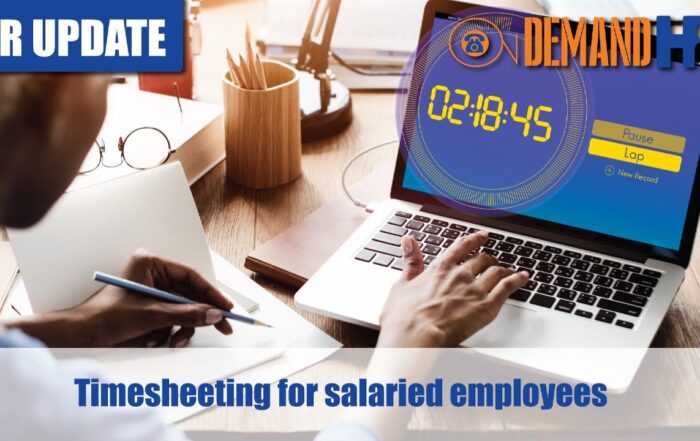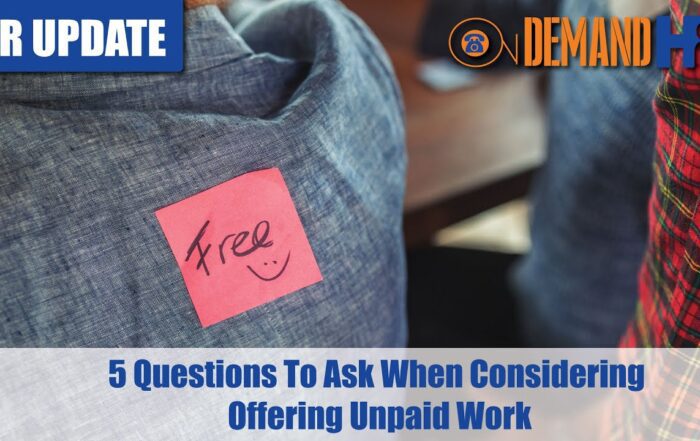Minimum Wage Increase 2022
As you may be aware, at 10am on Wednesday 15 June 2022 the Fair Work Commission issued their annual minimum wage decision. Today, we are going to summarize the key points of the decision, discuss what your business needs to do in response as well as highlighting some of the hidden implications that many have missed in the announcement which may lead to some businesses facing underpayment claims in the future.
Please see below for a full transcript of this video
Share the HR or workplace relations challenge facing your business and one of our experienced consultants will be in touch within 24 hours with a strategic action plan or discover the best strategy yourself by accessing out free online training library.
Transcript
As you may be aware, at 10am on Wednesday 15 June 2022 the Fair Work Commission issued their annual minimum wage decision. Today, we are going to summarize the key points of the decision, discuss what your business needs to do in response as well as highlighting some of the hidden implications that many have missed in the announcement which may lead to some businesses facing underpayment claims in the future.
First to summarize the decision, it has been well reported in the media that National Minimum Wages have increased by 5.2% to $21.38 per hour for full time employees and $26.53 for casuals once the 25% casual loading is factored in.
However, what has not been widely reported is that this headline increase of 5.2% does not apply to all Award covered employees, specifically Award covered employees earning more than $869.60 per week. For these employees the decision awarded a lower increase of 4.6%. So, please keep this in mind when reviewing your wages ahead of the July 1 increase and if you are unsure, please keep watching to the end of this video for a chance to schedule a free 30 minute consultation with one of our experienced HR & Workplace Relations consultants.
The complexity with this decision does not stop here. The increases are also staged in their roll out with employees covered by the Modern Awards you can see on your screen not receiving the pay increase until 1 October 2022. Most notable of these awards for the majority of businesses include the Hospitality, Clubs & Restaurant industries which have been given a little longer to recover from Covid.
So what should your business do in response to this decision? Well in general this biggest response is required from businesses who are paying some (or all) of their employees in accordance to the Modern Award. For these businesses, they will require to adjust their wages upwards by either 5.2% or 4.6% depending if the employee is being paid over or under $869.60 per week.
However, there is another question that businesses will be faced with. What if they are already paying their employees significantly above the award, do they have to pass on these increases? The answer to this is technically no, but the real question is should they? Despite what you might be hearing in the media, we can tell you from an on the ground perspective as an active participant in the recruitment market that candidates salary expectations are on the rise and in many cases they are being met with businesses looking to secure talent in a competitive market fueled by sub 4% unemployment.
The only real way to make a determination if you should be passing on this nominal wage increase to employees is by carrying out regular & comprehensive salary benchmarking to see where you are paying against the market. Of course, this is a service that we carry out as part of the On Demand HR membership and if you are not doing this, you are at risk of losing key personnel to competing offers.
Now to some of the broader Workplace Relations implications which seemed to have been missed by the mainstream media reporting on the minimum wage decision. The wage decision also impacts Annualised Wage/Salary Agreements that are required under several of the Modern Awards. Essentially, this requires businesses to specify the “maximum outer limit” of hours that employees can work before required to be paid overtime.
For some businesses, the wage decision could mean that they will need to “adjust down” the maximum outer limit, in order to ensure that their employees are not paid below the award minimum which may result in future underpayment claims.
So that is a wrap for the key details and implications of the 2022 Fair Work minimum wage decision. For those of you who are still unsure or would like some more specific advice regarding your individual circumstances, please let me introduce some of the On Demand HR team who will share details about our free HR & Workplace Relations advice, take it away Clint.






